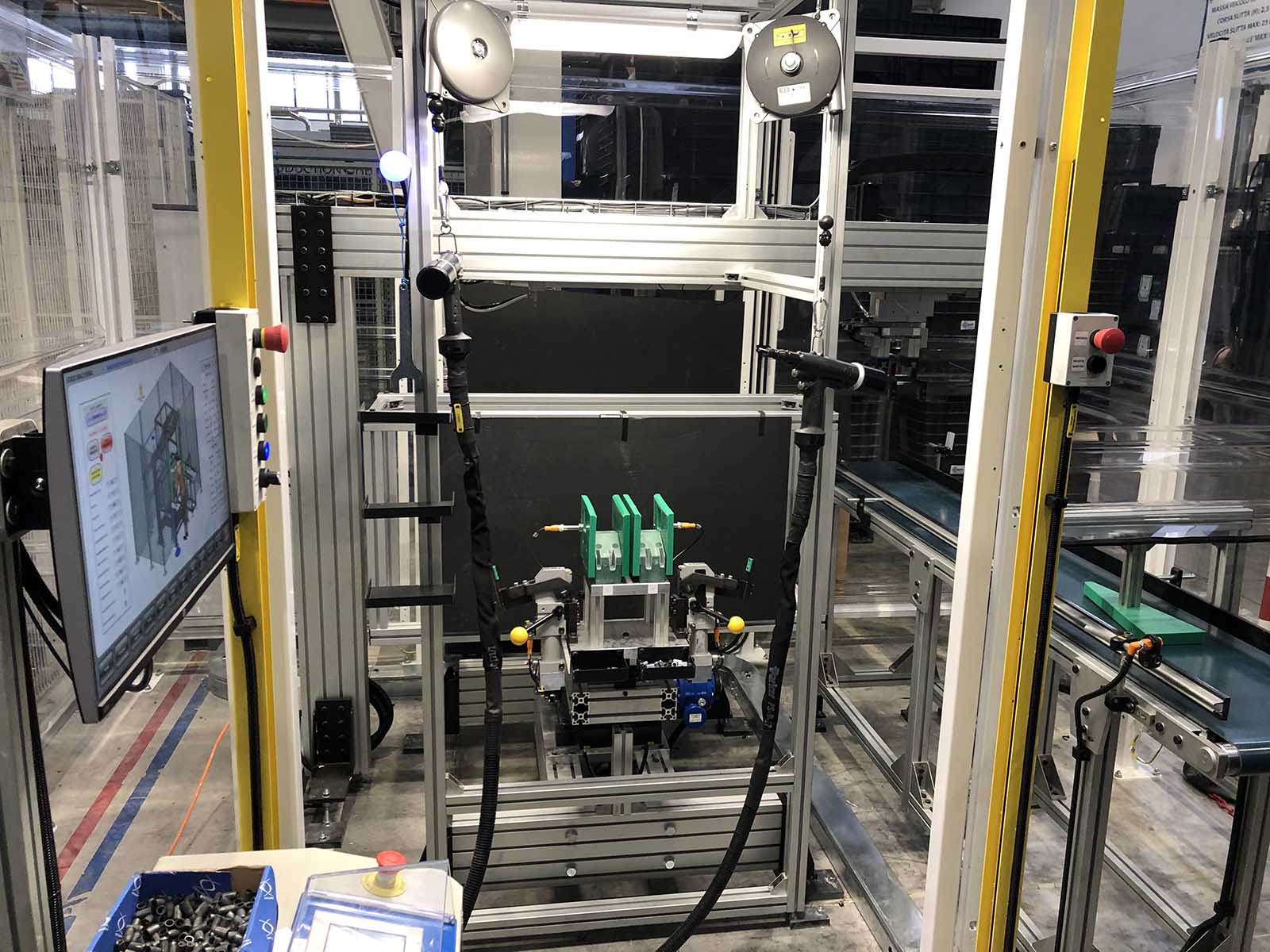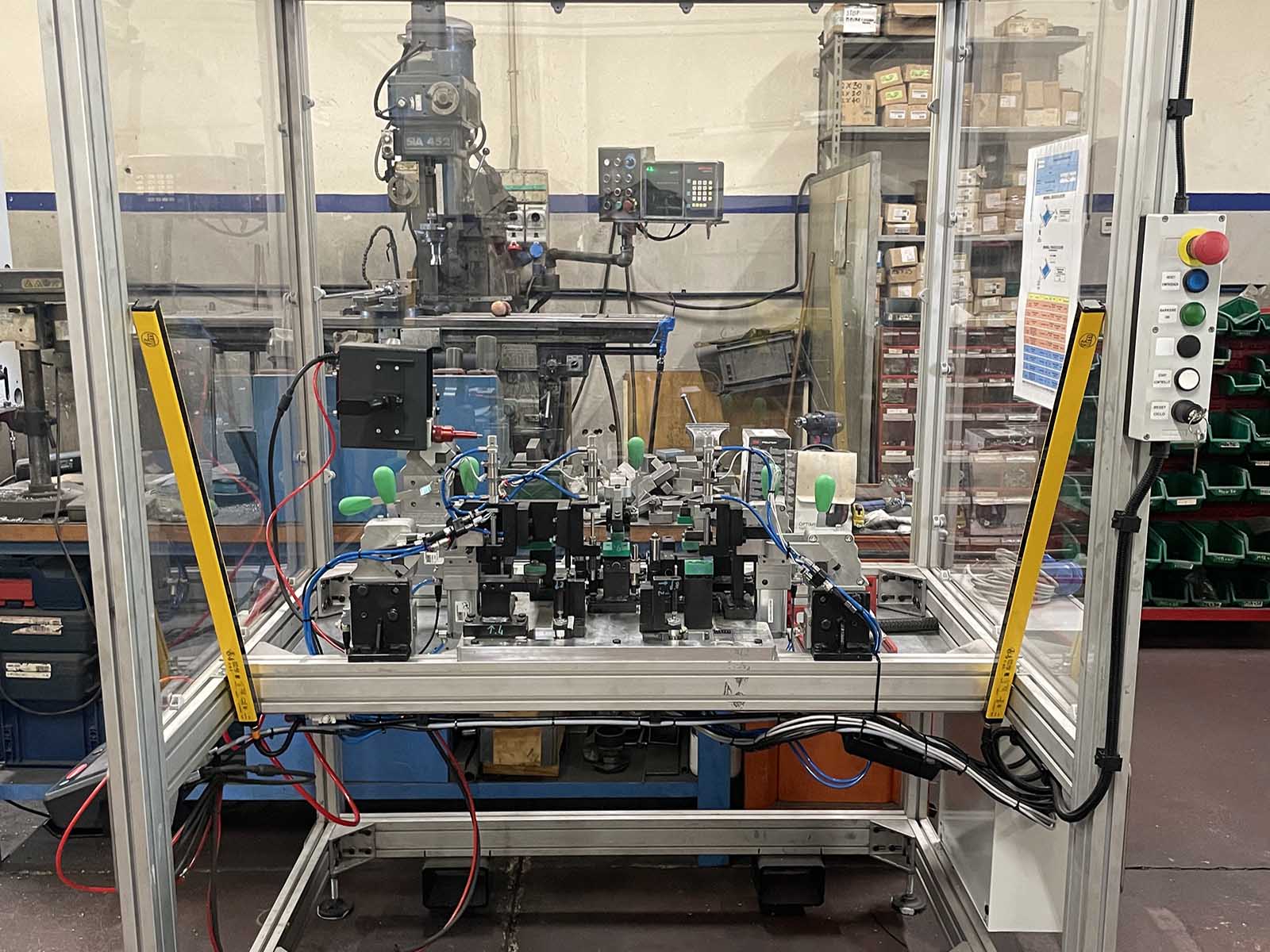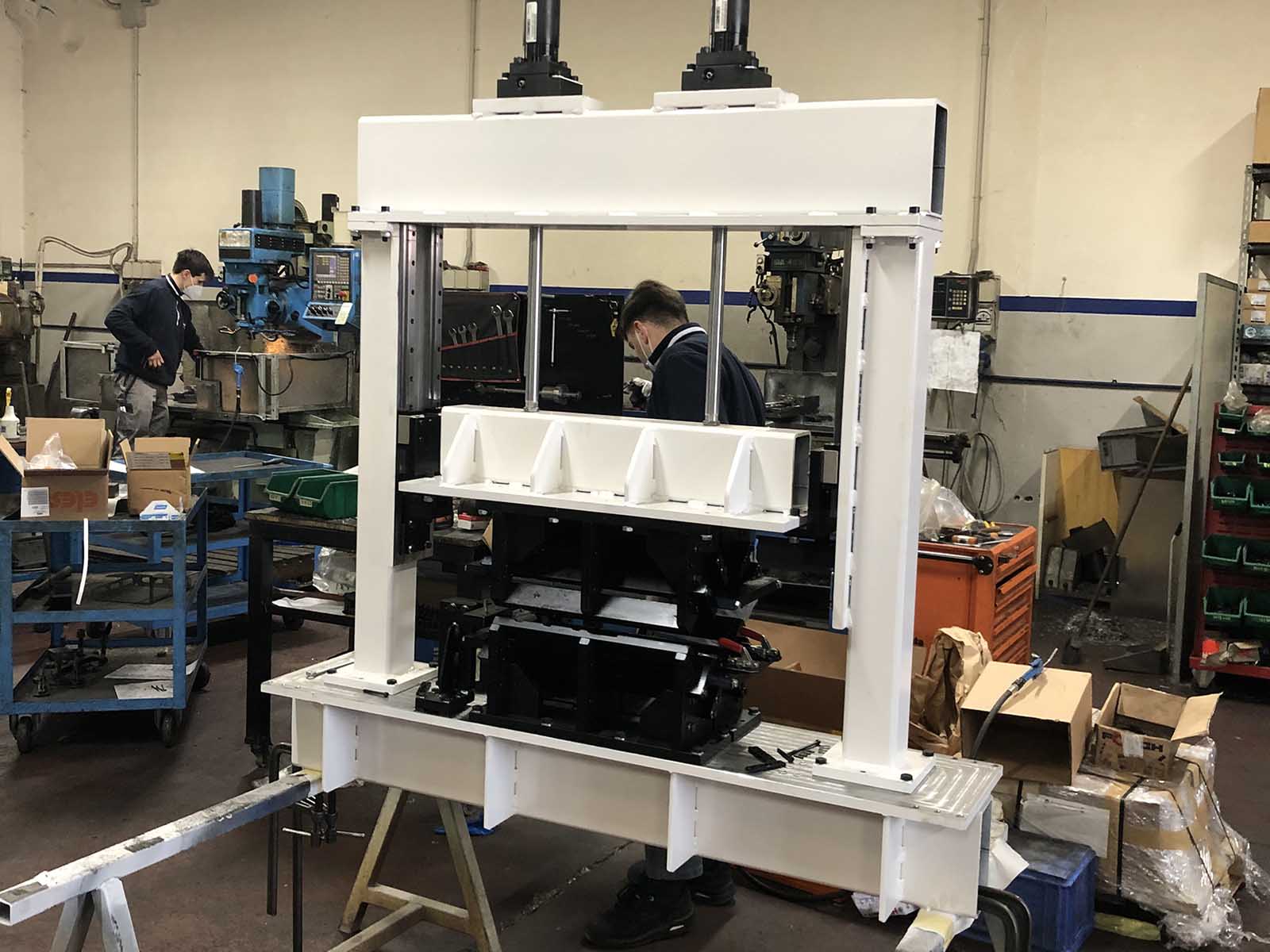TESTING AND MEASUREMENT BENCHES
Testing and measurement benches for the industrial sector are devices or test systems designed to verify and control the functional, dimensional, and performance characteristics of components, assemblies, or finished products.
These tools ensure that products comply with the required technical specifications and quality standards.
MAIN FEATURES
- Modular or Custom Structure:
Designed to adapt to specific production needs and different types of parts to be tested. - Integrated Measurement Systems:
Sensors, transducers, lasers, or cameras to accurately detect dimensions, geometries, forces, pressures, or other physical quantities. - Management Software:
Dedicated applications to collect, process, and display data in real-time, generating analysis and certification reports. - Automation:
Many benches are integrated into automated production lines for real-time testing without interrupting the production cycle. - Safety Systems:
Protective barriers, emergency switches, and locking devices to ensure operator safety.
TYPES OF TESTING AND MEASUREMENT BENCHES
- Functional Testing Benches:
Verify the proper operation of a component or system by simulating real usage conditions (e.g., pressures, temperatures, loads). - Dimensional Measurement Benches:
Check geometric and dimensional tolerances using measuring probes, laser scanners, or coordinate measuring machines (CMMs). - Mechanical Testing Benches:
Evaluate material resistance to stress such as tension, compression, bending, and fatigue. - Electrical and Electronic Testing Benches:
Check continuity, insulation, currents, and signals for electronic components or wiring. - Leak Testing Benches:
Assess the ability of components (e.g., tanks, valves) to retain fluids or gases without leakage.
MAIN FUNCTIONS
- Quality Verification:
Ensures that products comply with design specifications and industry regulations. - Production Monitoring:
Detects defects or variations in production processes in real-time. - Performance Analysis:
Tests operational limits and component capabilities to determine their reliability. - Product Certification:
Provides objective data to certify product quality according to international standards.
ADVANTAGES
- Precision and Reliability:
Accurate measurements for quality control. - Production Efficiency:
Reduced downtime thanks to automated testing. - Waste Reduction:
Early defect detection in the production cycle. - Traceability:
Digital storage of test data for future analysis. - Safety:
Rigorous tests ensure products are safe for final use.
APPLICATIONS
Automotive industry
Testing of engines, brakes, suspensions, and electronic components.
Aerospace sector
Testing of structural components, hydraulic systems, and electronic systems.
Household appliances
Performance and safety checks for appliances.
Energy and plant engineering
Resistance and performance testing on valves, pumps, and piping systems.
General mechanical industry
Dimensional measurements and resistance testing for metal and plastic components.
In summary, testing and measurement benches are essential tools for ensuring the quality, compliance, and reliability of industrial products while optimizing production processes and minimizing defects.




